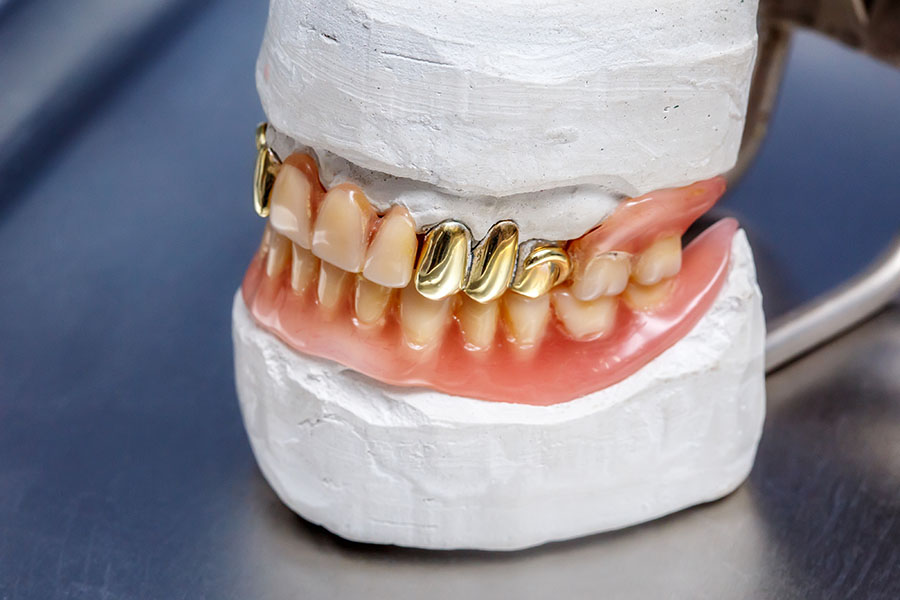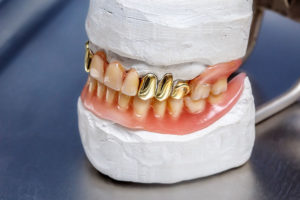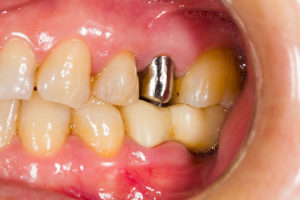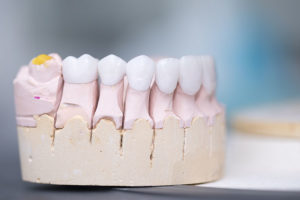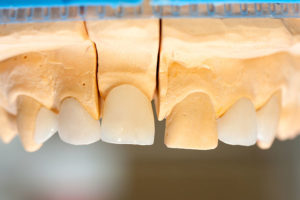As a replacement for broken fillings and teeth, dental crowns look like brand new teeth. They’re excellent dental solutions that restore your teeth all on their own or paired with an implant to last the rest of your life.
Whether they’re chipped or cracked, dental crowns protect the damaged tooth, preventing the need for a root canal or further work.
Every person’s mouth is different, making it difficult to know which type of dental crown to get. From porcelain to gold, you can spend tons of time researching individual options and not get any closer.
To save you time and headaches, we’ll explain the 5 types of dental crowns and their prices so you can know exactly what you’re getting into.
The 5 Types of Dental Crowns
You have 5 different types of crowns to choose from when working with most dental professionals. They’ll walk you through each option’s pros and cons in a crown consultation to make an informed choice.
Take a look at these common crown types to prepare you for the initial dental appointment.
1). Gold Crowns
As one of the strongest crown types, you won’t worry too much about gold crowns falling out or breaking when chewing something hard. Gold as the base metal alloy for dental crowns last longer than any other.
Although they’re noticeable and easy to spot wearing them in the front, you can restore your back teeth without too much attention.
Thankfully, dentists won’t need to remove as much tooth structure to attach these crowns as they would with other options.
| Gold Crowns | |
| Pros | Cons |
| Status symbol | Expensive |
| Durable | Don’t look like natural tooth |
| Less tooth structure removed | Allergies for some |
| Long-lasting | |
| Front and back teeth |
2). Porcelain Crowns
Unlike gold and metal types, you can restore a brilliant smile with porcelain crowns. Resembling natural teeth, most coworkers and family members won’t be able to tell the difference.
Dentists make them from ceramic, so watch out for their shorter lifespan. Porcelain crowns aren’t as durable for chewing and clenching against other teeth.
| Porcelain Crowns | |
| Pros | Cons |
| Look like natural teeth | Less durable |
| Biocompatible (no metal) | Don’t withstand chewing forces |
| Front teeth | |
| Cheap |
3). Porcelain Fused to Metal Crowns
A mixture of metal and porcelain crowns is the porcelain fused to metal crowns. Get both the strength of metal and a natural appearance in a single crown instead of one or the other.
Patients often complain about a “greyline” that appears from the metal portion of the tooth. And if the porcelain cap ever chips, you’ll only have metal left to protect the tooth.
| Porcelain Fused to Metal Crowns | |
| Pros | Cons |
| Durable | Grey gumline from metal |
| Less than porcelain | Teeth clenchers wear down more easily |
| Cheap |
4). Zirconia Crowns
Zirconia crowns are another attempt to masquerade the metal found in durable crowns. A majority of our patients claim the match is successful.
Dentists love this crown type because they’re biocompatible, or not made of metal. Have peace of mind if cementing metal artificial teeth doesn’t sit right with you.
The only downside is wearing over time, similar to porcelain crowns.
| Zirconia Crowns | |
| Pros | Cons |
| Look like normal teeth | Difficult to adjust |
| Durable | Crowns wear down more easily |
| Long-lasting | |
| Biocompatible (no metal) |
5). E-Max Crowns
Made of lithium disilicate, purchase another type of ceramic crown that is lighter and thinner than traditional porcelain options. We compare e-max crowns to purchasing a material similar to glass, but they last far longer.
They’re more durable than zirconia and are arguably the best option for blending into your natural smile. Be aware that e-max crowns are also the most expensive, but are worth every penny.
| E-Max Crowns | |
| Pros | Cons |
| Look like normal teeth | Expensive |
| Durable | Higher risk of failure the more you do at once |
| Front and back teeth |
What is the cost of dental crowns?
Dental crown cost varies, depending on the specific type you choose.
The following are the approximate costs for each type of crown. However, you’ll need to speak to your dentist to figure out how much procedures cost and whether they’d charge you more with a specialist referral.
| Crown Type | Price |
| Gold | $600 to $2,500 |
| Porcelain | $800 to $3,000 |
| Porcelain Fused to Metal | $500 to $1,500 |
| Zirconia | $800 to $3,000 |
| E-Max | $800 to $3,000 |
Is there Insurance for Dental Crowns?
Dental insurance exists for crowns but may not exist for every type since they vary in price. You can take a look at our list of accepted insurance carriers and call them to see whether they’ll cover the price of a crown.
Or you can speak to one of our staff members and they can call the insurance company for you. Without insurance, East Valley Dental Professionals still offers affordable crowns and/or cleaning visits that maintain crowns for longer.
We Can Help You Choose the Right Dental Crown
As is the case with dental implants, you may have outstanding situations that make it impossible to get a crown done at the moment, such as periodontal disease or not having enough jawbone.
Our dental professional, Dr. Nathan Smith, can take inventory of all these possibilities when consulting you with a dental services appointment.
He’ll do everything he can to recommend the crown type that costs you the least overall. Installing a temporary crown, you’ll be prepared to move into the permanent crown that benefits your oral health the longest.
Call our expert dental staff at (480)-838-3033 so we can get you scheduled for a crown visit. There’s minimal to no waiting time and we can even see you during the early morning hours or the busy lunch rush.

